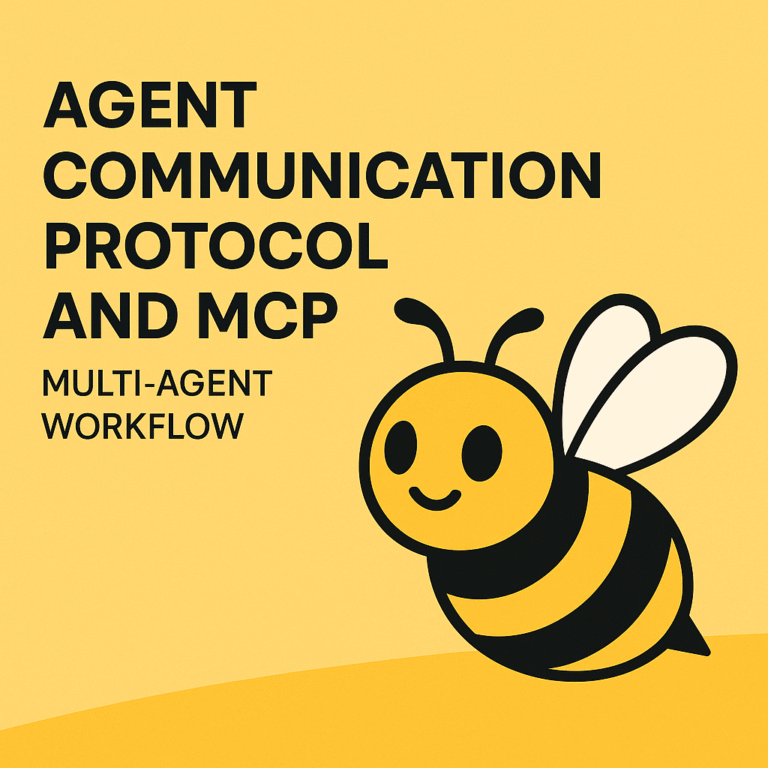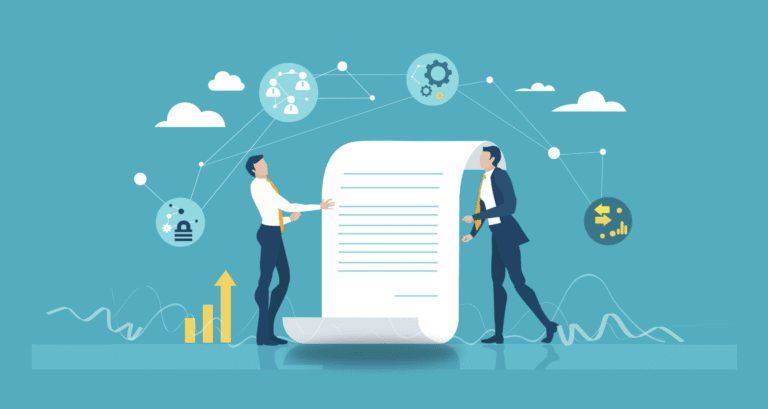Get ready, world: AI assistants may become your new business BFF.
Imagine writing an email in 20 seconds instead of 20 minutes, completing hours of research in minutes, or automatically receiving a full summary of a customer’s service history.
These examples demonstrate the power of an AI assistant, or copilot. It’s the next level of innovation within generative artificial intelligence (AI) technology, where you simply tell a copilot what to do for you, right in the flow of your work.
For example, sales. Salesforce is collapsing the most common and valuable seller processes into conversational AI interactions grounded on an organization’s business-specific data and metadata, and delivered at scale through new analytics and testing tools.
A key component of this metadata, and unique to recently released Einstein Copilot, are Copilot Actions — pre-programmed capabilities that enable Einstein Copilot to not only answer questions using business data, but also string together workflows to get things done on behalf of users.
Salesforce recently increased its library of actions with new capabilities where sellers can benefit from conversational AI directly in Sales Cloud. Instead of navigating to a bespoke AI tool disconnected from their customer relationship management (CRM), sales reps can simply open up Einstein Copilot and ask for a personalized close plan, insights on why an opportunity may not close in the month, or check if pricing was discussed on a recent call – which means more time focused on the customer and less time sifting through data and screens.
How an AI assistant works
While hundreds of millions have flocked to AI platforms over the past year, an AI copilot takes them to a whole new level. You won’t find this assistant on a website. It shows up as a conversational AI interface integrated with your everyday workflow, whether it’s a CRM, email, or other system specific to your industry.
A copilot makes you more productive by doing work on your behalf. The best part? You just tell it, in plain language, what you want it to do and it does it for you. The technology is now being applied across sales, service, marketing, retail, and many other industries and roles. If you’re a knowledge worker (that is, anyone who works with information), an AI copilot is for you.
A report by the Oliver Wyman Forum found 55% of global workers are already using generative AI at least once a week, but the expected productivity gains have been lacking. The turning point, however, is coming as generative AI integrates into daily workflows. That, the report predicts, will propel massive productivity gains to the tune of 300 billion hours saved annually by 2030.
So, how do these productivity workhorses get the job done? Just like the major AI platforms, copilots use large language models (LLMs) to parse immense amounts of data in seconds. But they take the outputs further by performing tasks on your behalf. Given their unprecedented functionality, AI copilots are expected to transform every business function. Many companies are jumping in as early adopters.
You might be thinking, “How could I use a copilot at work?” To help answer this, we’ll break down the most common ways to use AI assistants at work, as well as look at how companies are planning ahead with this technology in mind. Here are several examples.
Move Business Along with AI For Communications
AI assistants for salespeople
Andrew Russo, enterprise architect at Baca Systems, an industrial equipment supplier, envisions many ways of using an AI assistant. First up: sales emails.
“We found that salespeople spend up to 20 minutes writing one custom email to a customer,” he said. “Being able to dish out more emails would be a high-value thing for us.”
Picture your sales and marketing teams equipped with an AI in CRM assistant that drafts individualized emails, customized with the information that will resonate with each audience. These aren’t run-of-the-mill, generic messages. Generative AI can use CRM information about past interactions, or automatically segment your audience to create emails with a personalized feel that can dramatically increase engagement rates.
Salespeople can also use a copilot to prioritize. Imagine starting your day by asking your computer to give you the top three sales leads. A copilot can do that, and also provide context. Why is the customer a good prospect? Generative AI can flag recent news from the company indicating, for example, that it plans to invest in new markets or expand its product portfolio.
Once you’ve contacted a lead, an AI copilot can support you by summarizing conversations and highlighting customer needs, preferences, and all commitments made. It can also create complete sales summaries by merging call details with broader account information and historical data.
Say hello to Einstein Copilot
Your trusted conversational AI assistant for CRM gives everyone the power to get work done faster. It’s a total game-changer for your company.


Don’t know how to move a deal forward? An AI copilot can review contacts, recent emails, calls, and customer meetings, and recommend next-best actions. For example, if a customer’s decision-makers are ready to buy, the copilot might recommend the right time to send them detailed information about your products and services.
The copilot can even suggest optimal meeting times, based on the customer’s known preferences. Then, it can:
- Generate a suggested task list.
- Draft an email to decision-makers, which you can review before sending.
- Mark the deal as closed and update the opportunity, including the sales amount.
This kind of end-to-end support represents what’s possible when your AI copilot has access to all the data in your organization. While many companies have different sets of data siloed in different departments, those who can bring different types of information from different sources into one organized system will reap the full benefits of AI copilots.
AI assistant for service teams
If you work in customer service — or have ever interacted with a service department — you know chatbots aren’t anything new. With an AI copilot, though, you supercharge an agent’s ability to resolve problems. AI copilots (or AI agents) can often gather the most relevant information about a customer, in real time, to help agents resolve cases faster, freeing them up to troubleshoot more complex problems.
Consider this example: A customer says they were overbilled for their monthly internet expense. In this case, the agent simply asks its copilot to:
- Retrieve the relevant billing information based on the date range provided by the customer.
- Get the purchase order and contract terms for the subscription.
- Compare how much higher this time period’s bill is compared to the same time period last year.
- Gather product usage information and analyze whether the usage has increased.
- Find out if pricing or contract terms have changed.
- Create a proposal for how to address the issue.
In the past, gathering this information would require an agent to access several different systems or departments. That takes lots of time and, in many cases, frustrates the customer and the agent.
AI assistants for self-service customers
The verdict is in: Customers prefer to not call you for routine questions. Salesforce research shows 57% of customers prefer to deal with companies through digital channels, like text and chat, for simple issues like checking order status or changing a mailing address.
How can an AI copilot make these interactions better? Instead of providing links to help customers complete a task, the way many chatbots currently do, an AI assistant can serve up personalized data that draws from your information bank (also known as a knowledge base), customer data, and other sources. This gives self-service systems much more depth, with conversational abilities that are more like a human-to-human conversation.
Because the copilot is pulling data from across your organization, it can answer questions about orders (When will it arrive? Can you change the shipping address?) and specific customer account data (When is my next payment due?). It can also take actions that previously required a human, like closing an account or mailing a replacement card.
Everything you need to know about AI in customer service
Whether you’re in the contact center or in the field, AI in customer service can transform the customer experience.



AI assistants for retailers
Product recommendation engines have been used by brands for years, but they lack the granularity and personalization that customers expect. An AI copilot changes the game.
For example, a customer can enter a simple prompt like “show me short-sleeved pink dresses I can wear to a June wedding” on a retailer’s website and get relevant choices. In the background, the AI assistant is using its knowledge of natural-language prompts to quickly return the best results to the shopper.
In this way, an AI copilot can act as a digital concierge, helping the customer discover the perfect product, with minimal hassle. Assuming the customer is a known shopper, the copilot would use the customer’s profile to understand their intent, and make recommendations based on past purchases, affinities, and service records. For example, it wouldn’t bother recommending a product similar to something the customer has returned in the past.
AI copilots are also a game-changer for retail teams. They can automate complex tasks like managing multiproduct catalog data and personalizing product promotions, simply by telling the copilot to perform those tasks. They can also craft product descriptions based on historical data that shows what copy has converted well in the past, as well as write product descriptions in multiple languages.
The most recent State of Commerce report found that, while AI adoption is nascent in retail organizations, early adopters are saving an average of 6.4 hours per week. Retail marketers, for example, can save loads of time by asking their copilot to create a targeted promotion for, say, hiking boots for loyalty program members.
AI assistants for marketers
Marketing teams spend lots of time analyzing trends, understanding customer preferences, developing segmentation strategies, and establishing competitive positioning. They’re also deeply invested in content creation to personalize their messaging
Imagine if a trusted assistant could do that work for you. You can ask your AI helper to:
- Closely analyze historical customer data to identify narrower segments, and tailor marketing messages on a more personal level.
- Write marketing copy unique to each customer segment.
- Track and understand how your customer is engaging with you at every step of the relationship – then suggest next-best actions.
- Use existing customer data to infer which topics and channels customers prefer, and then personalize the products, articles, and other information they’ll see there.
- Understand how customers prefer to receive communications and what they’re interested in, and prioritize those message types and relevant content.
AI assistants = smarter workdays for everyone
AI can already automate repetitive tasks, process and analyze large volumes of data quickly, and help you make data-driven decisions across any department. Now, with AI assistants, we’re at a productivity inflection point similar to how PCs revolutionized the way people tackle business tasks and communicate.
The breakthrough now is twofold:
- Business users can ask their AI copilot for what they want. The copilot goes to work in the background, provides an answer in seconds, and takes action accordingly. This is the kind of futuristic, “I can’t imagine that ever being possible” stuff from “The Jetsons.”
- With the right protocol and prompt systems in play, the split-second answers you get from your copilot are grounded in business data from across your organization, not just a sales, marketing, or customer service system. Actions built for copilots have access to all this business data, plus data that previously couldn’t be analyzed like PDFs, web pages, and emails.
AI assistants are “a really a big shift from the idea of people thinking we’re going to automate them out of a job to showing them that we’re helping them close more deals and serve customers better,” said Russo.
It’s not just about speeding up the usual mundane tasks. It’s about redefining what you can achieve in a day’s work.











